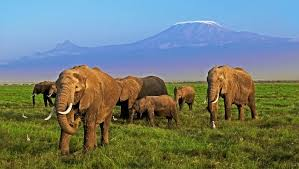Module 5: Wild animals
- Wild animals in the wild (before Thanksgiving)
- Is there a vast problem of wild animal suffering?
- Intervention vs. laissez faire (Singer vs. Plamer/D&K)
- One-off intervention vs. systemic intervention (gene drives)
- helping one species (spotted owls) by killing individuals of another species (barred owls)
- Wild animals in captivity (today and Wednesday)
- zoos and aquariums (field trips discussed Wednesday)
- sanctuaries
- Hunting wild animals (Friday)
_________________________
Lori Gruen, "Dilemmas of Captivity"--from Ethics and Animals: An Introduction
Judging zoos, aquariums, etc.
- Are they good or bad for the individual wild animals who live there?
- Are they beneficial for wild animals still in the wild? Do they foster conservation effectively?
 |
| Question 1: Are they OK? |
_________________________
Gruen: captivity is generally bad for captive wild animals for two reasons--
- Loss of liberty
- Loss of wild dignity
_________________________
Gruen's points about liberty
- Liberty is instrumentally good for wild animals
- in captivity they usually have unmet needs
- example: birds in aviary can't fly; zugunruhe
- next time: your observations
- Liberty is intrinsically good for animals--constitutive of their wellbeing
- however well off an animal is, they'd be better off if they freely met their own needs
 |
_________________________
Gruen's points about dignity

Kantian dignity: humans have dignity because they are self-aware, adopt their own goals, and understand right and wrong. Gruen: no application to animals.Political dignity: humans have dignity to the extent they are recognized as citizens in a society--can speak, assemble, vote, etc. Gruen: no application to animalsAnimal dignity: any being has dignity to the extent it can exercise its species-specific capacities. Wild and domesticated animals can have dignity, potentially. Gruen's doubts: Is every natural animal behavior really dignified?Wild dignity: wild animals have dignity to the extent that they have their own lives, live in their own world, and possess a kind of sovereignty. Captivity deprives wild animals of this sort of wild dignity. Gruen: this is the right concept for wild animals, but has no application to domesticated animals.
_________________________
interlude: dignity and domesticated animals
NYT--Intergroomer contest
Gruen: No loss of wild dignity (dogs can have none), but treated as objects
_________________________
What else is good and bad about captivity?
- Loss of liberty (instrumentally and intrinsically bad)
- Loss of wild dignity
- Other?
What is good about captivity?
- Solves the problems that cause wild animal suffering!
- predation?
- low infant mortality
- no drought or famine
- no hunters
What would Gruen say?
_________________________
Animal sanctuaries
- for chimpanzees retired from animal labs - Chimp Haven
- for elephants who didn't thrive in zoos - The Elephant Sanctuary
- for wild animals who didn't work out as pets
- for rescued dogs, cats, farm animals (domesticated)
Do sanctuaries give animals complete liberty and dignity?
_________________________
After captivity, can wild animals be returned to the wild?


